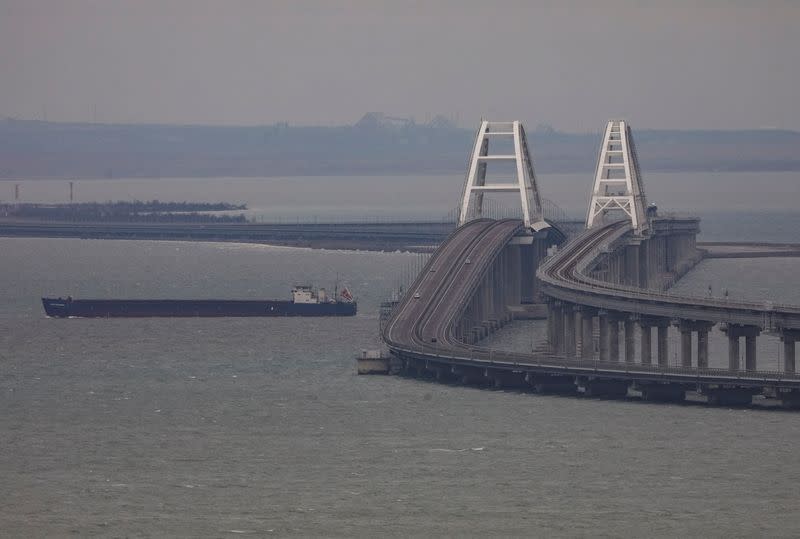Russian gas cargoes cross Crimea bridge after 4-month wait

MOSCOW (Reuters) - Three gas carriers loaded with butane and propane crossed the Russia-built Crimea bridge over April 12-14 after a four-month wait and set sail for their destinations, Refinitiv ship-tracking data showed on Wednesday.
Two industry sources also said this could mean the Russian terminal in Temryuk on the shores of the Azov Sea is poised to resume exports of liquefied petroleum gas (LPG).
The arrival of the Gas Milano gas carrier to the Temryuk Bay, according to Refinitiv ship-tracking data, could also indicate the possible resumption of supplies.
The 12-mile (19 km) road and rail bridge, which was personally opened by President Vladimir Putin in 2018, was bombed in October in an attack Russia said was carried out by Ukraine, which denied its involvement. The bridge spans the Kerch Strait linking the Black Sea with the smaller Azov sea.
Several tankers loaded with butane and propane, were unable to cross the Crimea bridge due to security restrictions, traders said last month.
The terminal Maktren-Naphtha, the port of Temryuk and Russia's Federal Service for Supervision of Transport did not respond to a request for comments.
It usually takes up to a week for tankers to deliver LPG cargoes from Temryuk to the Romanian ports of Midia and Mangalia, or to the Bulgarian port of Burgas.
(Reporting by Reuters; editing by Barbara Lewis)

 Yahoo Finance
Yahoo Finance 